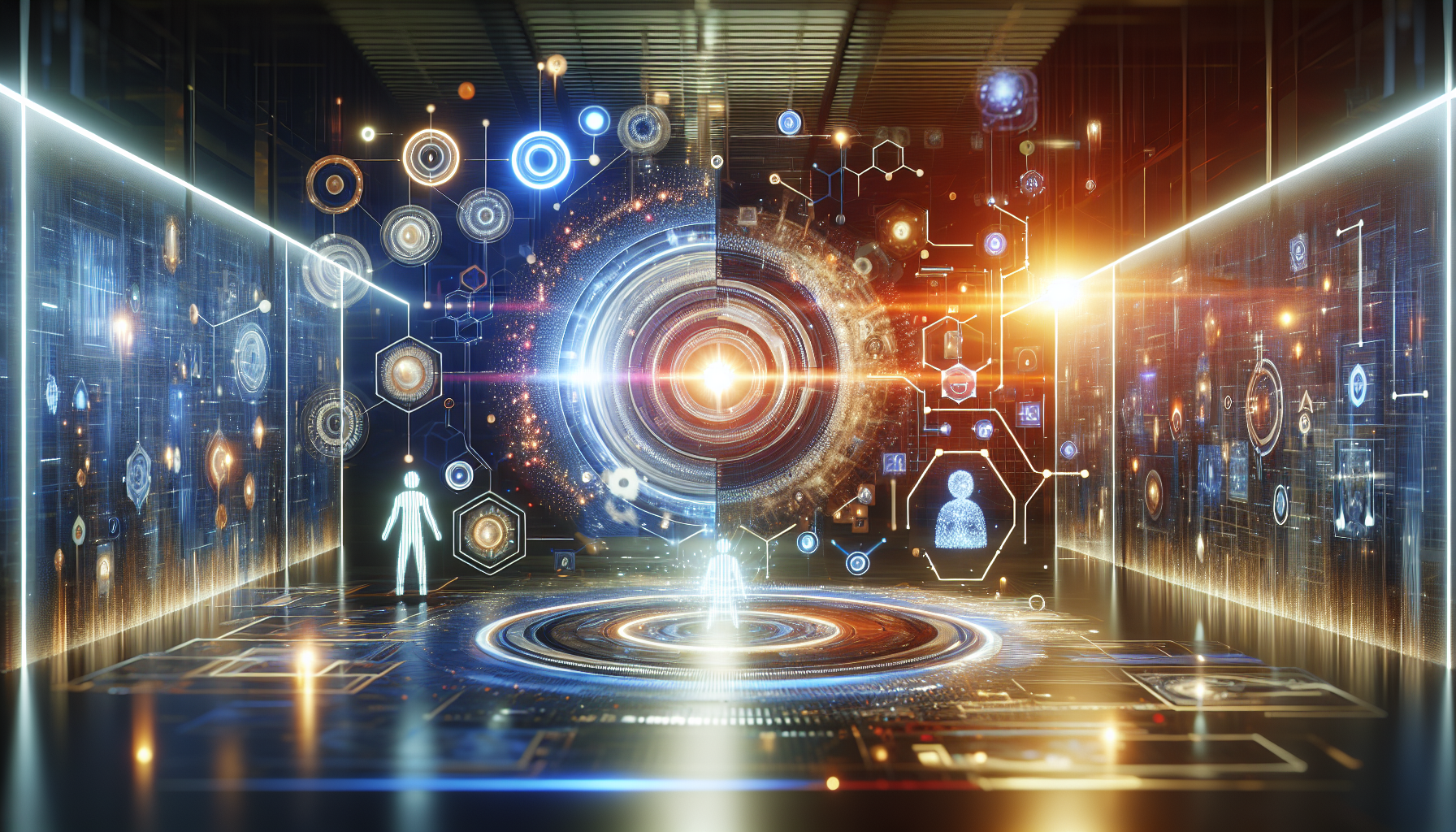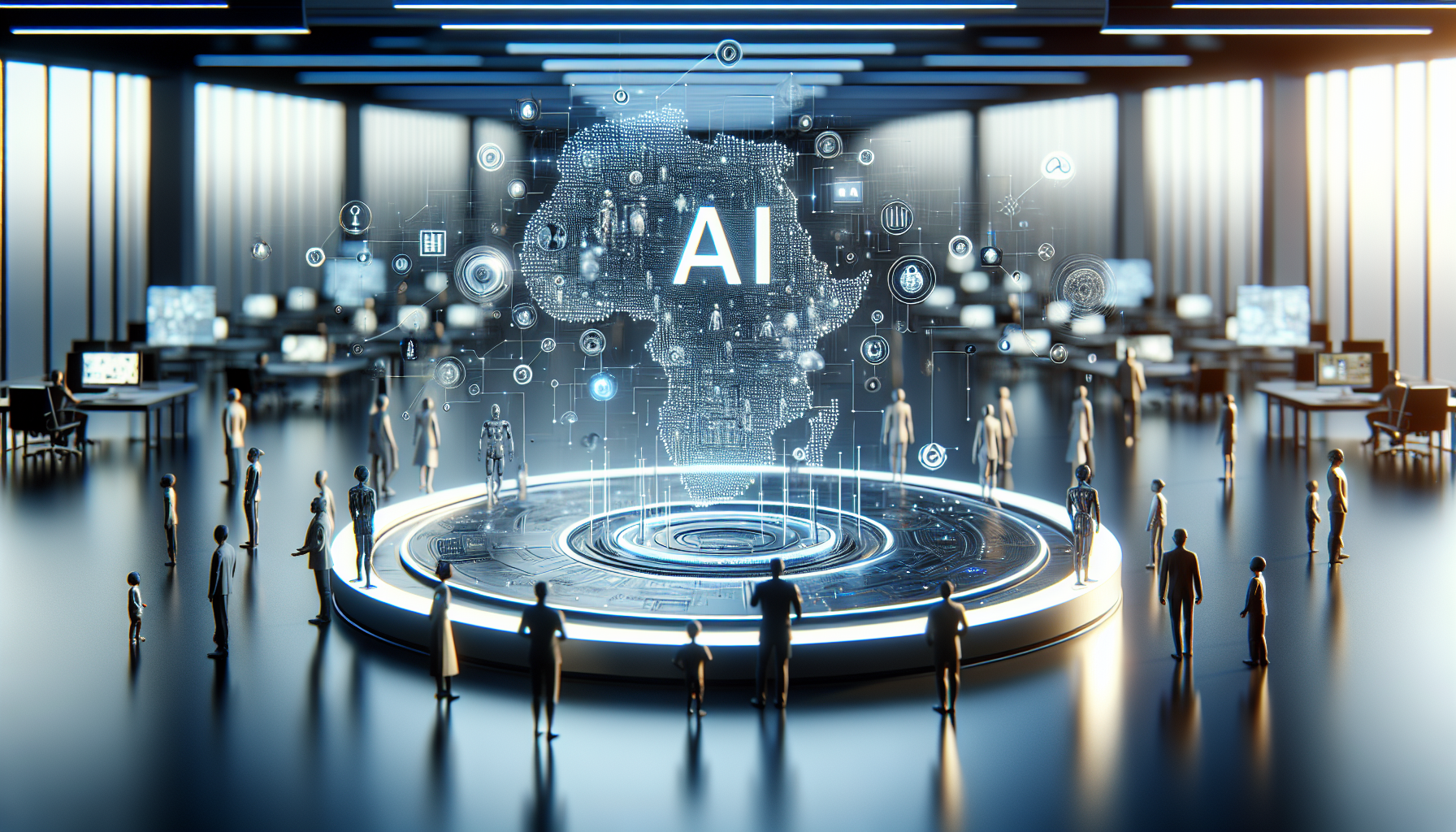
How AI is Transforming Healthcare: A Step-by-Step Guide to the Future of Medicine
October 1, 2025
Imagine walking into a doctor’s office where the diagnosis begins the moment you enter the room, with advanced sensors and artificial intelligence analyzing your health in real-time. This isn't the distant future; it's a reality being shaped by AI today. As artificial intelligence weaves its way into healthcare, its potential to revolutionize this critical sector is undeniable. Here's how AI is not just changing healthcare but transforming it into a more efficient, personalized, and proactive field.
At the heart of this transformation is AI’s ability to process vast amounts of data with accuracy and speed. This capability is crucial in an era where the volume of medical data is overwhelming for human practitioners alone. Consider the process of medical imaging. Radiologists spend countless hours examining scans for signs of disease, a task AI can assist with by identifying anomalies much faster and sometimes with greater accuracy. For instance, AI algorithms can now detect lung nodules on CT scans or identify diabetic retinopathy in eye images with precision. This not only speeds up diagnosis but also allows doctors to focus on treatment rather than detection.
The personalized medicine potential of AI cannot be overstated. By analyzing genetic information, AI can assist in predicting individual responses to different treatments. This means that the days of one-size-fits-all medication are numbered. AI enables the tailoring of therapies to the genetic makeup of each patient, optimizing efficacy and minimizing adverse effects. Imagine a cancer treatment plan crafted specifically for your genetic profile, enhancing the chances of remission and recovery.
AI's role in predictive analytics is another transformative force. By assessing patterns in historical patient data, AI can predict potential health issues before they become critical. This proactive approach means conditions like heart disease or diabetes can be managed or even prevented with early interventions. Wearable technology powered by AI can continuously monitor vital signs and alert healthcare providers to irregularities, ensuring timely medical responses and potentially saving lives.
In the realm of drug discovery, AI accelerates the process exponentially. Traditional drug development can take years, but AI models can analyze existing data to predict how different compounds might behave, identifying promising candidates for further testing. This not only reduces the time and cost involved in bringing new drugs to market but also enhances the possibility of discovering treatments for conditions previously considered incurable.
Moreover, AI is reshaping administrative tasks within healthcare systems. By automating routine processes—such as scheduling, billing, and even initial patient triage—AI frees up valuable time for healthcare professionals to focus on patient care. These efficiencies translate into reduced operational costs, which can then be redirected into patient services and cutting-edge research.
However, as with any technological advancement, the integration of AI into healthcare comes with challenges. Data privacy concerns must be addressed to ensure patient confidentiality is maintained. Additionally, the ethical implications of AI decision-making in medical contexts require careful consideration, particularly in maintaining a balance between human judgment and machine recommendations.
Yet, the benefits far outweigh the concerns when AI is applied thoughtfully and ethically. A healthcare system that anticipates issues, personalizes treatments, and accelerates drug development holds the promise of not only improving lives but also extending them. AI's transformative power in healthcare is not merely an enhancement; it's a revolution that promises to redefine what is possible in medicine.
So, what does the future hold? As AI continues to advance, the possibilities appear limitless. Will AI-powered healthcare become the norm, leading to a world where diseases are not just managed but eradicated before they even begin? This is a question worth pondering as we stand on the cusp of a new era in medicine, driven by the remarkable capabilities of artificial intelligence.


